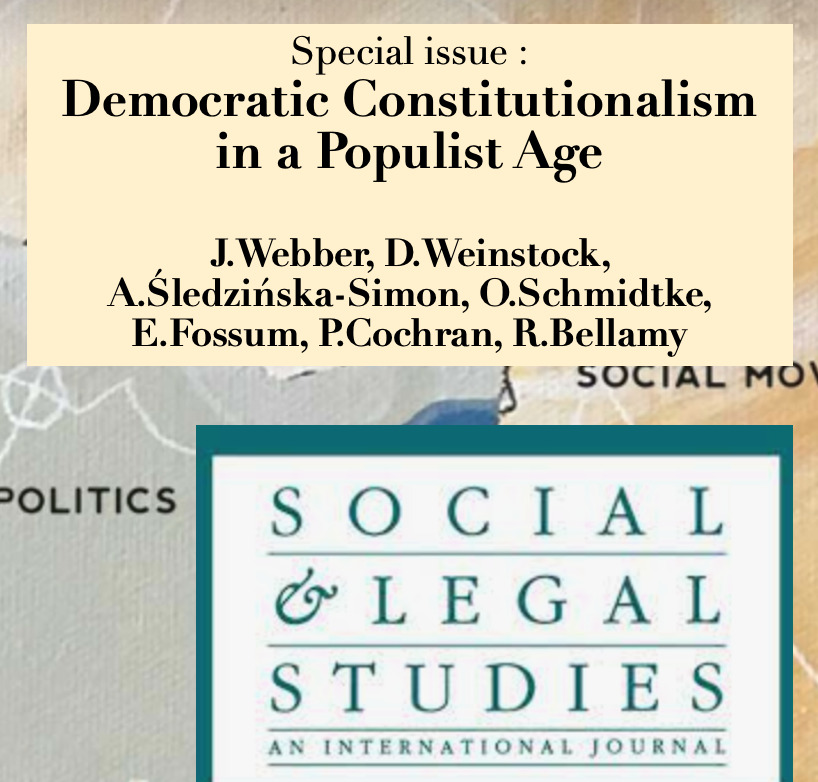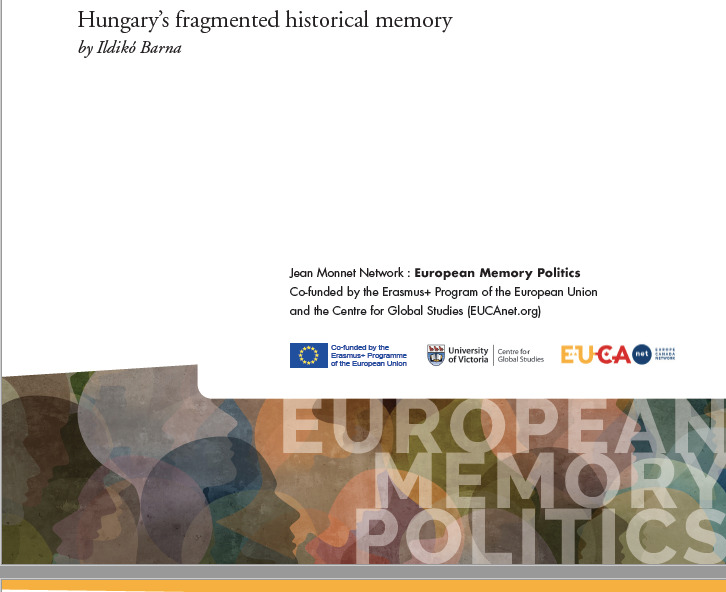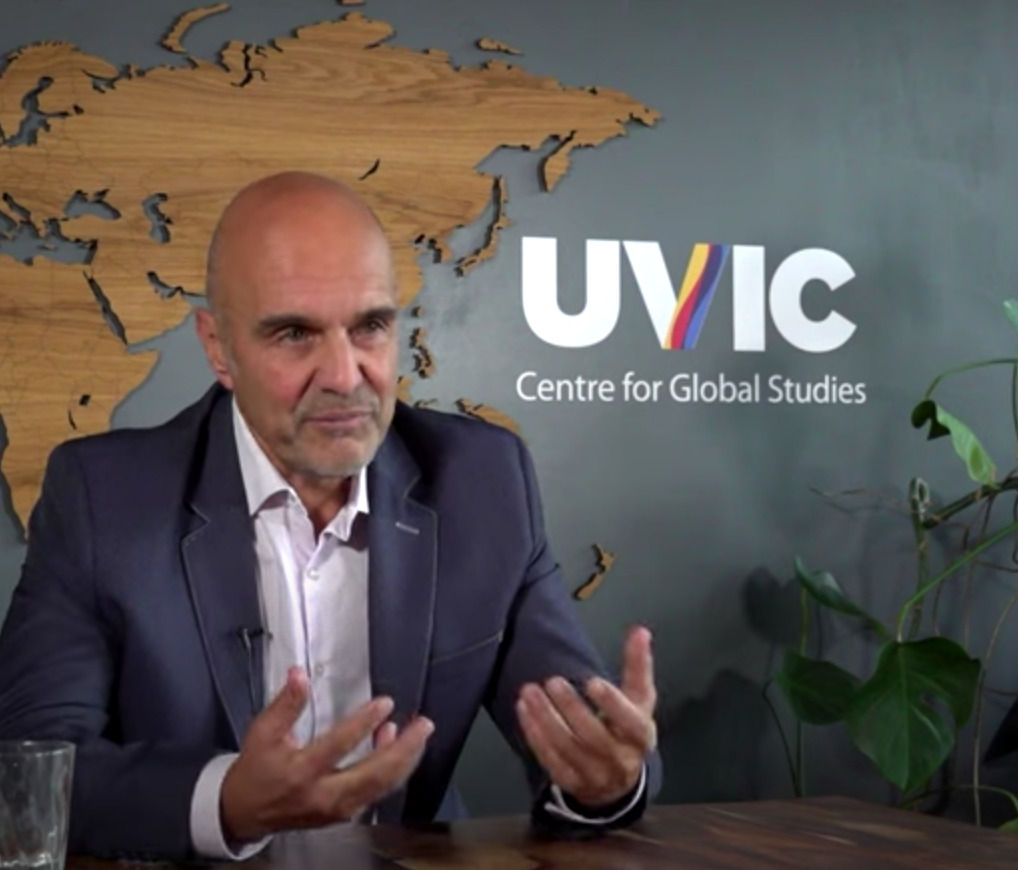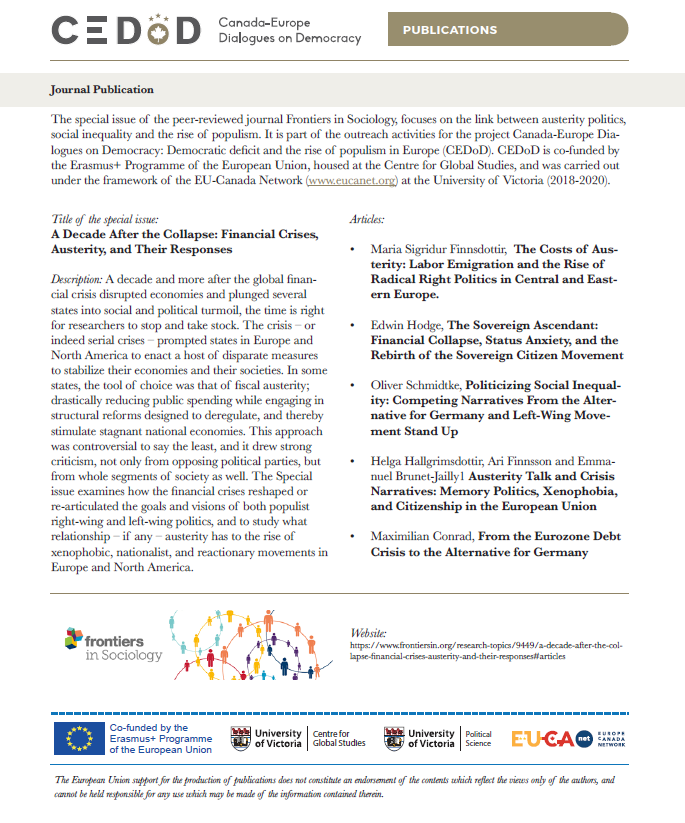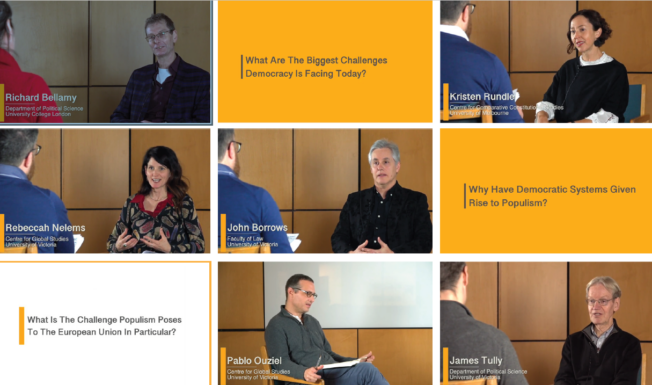Special issue of the journal Social & Legal Studies: ‘Democratic Constitutionalism in the Age of Populism’
Just out :
Special issue of the journal Social & Legal Studies: ‘Democratic Constitutionalism in the Age of Populism’ with contributions from
Jeremy Webber (Understanding Populism), Daniel Weinstock (Confronting Populism), Anna Śledzińska-Simon (Learning Lessons from the Populist Defeats: From Negative to Positive Constitutionalism), Oliver Schmidtke (The ‘Will of the People’: The Populist Challenge to Democracy in the Name of Popular Sovereignty), Erik Fossum (In What Sense Does Right-Wing Populism Pose a Democratic Challenge for the European Union?), Patricia Cochran ( Jurisdictional Relationships: Democracy and the Administrative State Through the Lens of Caring Society v Canada ), and Richard Bellamy (Political Constitutionalism and Referendums: The Case of Brexit)
The introduction can be found at: Webber, J., Schmidtke, O. and E Bodnár. Introduction: Democratic Constitutionalism in a Populist Age (Introduction to special issue). Social & Legal Studies, 2023
https://doi.org/10.1177/09646639231198649.
The special issue is based on a SSHRC co-financed conference that was held at the University of Victoria in March 2020. ‘Democratic Constitutionalism in the Age of Populism’. The Social Sciences and Humanities Council of Canada (through its Connections Grant Program), the Centre for Global Studies at the University of Victoria, and the European Union’s Erasmus+ program all provided major financial support. Several units of the University of Victoria provided additional funding or in-kind support: the EU-Canada Network (www.eucanet.org), the Jean Monnet Project Canada-Europe Dialogues on Democracy (CEDoD), and the Cedar Trees Institute all housed at the Centre for Global Studies; the Consortium for Democratic Constitutionalism (Demcon); the Faculties of Law, Social Sciences, and Humanities; and the Office of the Vice-President Research. Special thanks to the Faculty of Law at Eötvös Loránd University (ELTE) for its assistance in the conference’s organization, and to the ELTE Faculty of Law, the Research Group on ‘Constitutional Populism: Friend or Foe of Constitutional Democracy’ at the University of New South Wales (funded partially by the Australian Government through the Australian Research Council), and the Project on Differentiation, Dominance and Democracy in the European Union (EU3D) (funded by the European Commission under the H2020 program), for their groups’ participation in the meeting. The conference seemed as though it might be the last international conference for the foreseeable future, held as it was as COVID-19 took hold. As a consequence, several of our participants were prevented from travelling at the last moment. Nevertheless, they were integral participants. We thank them for their many contributions, we thank the researchers, graduate students, and other parties who were able to attend (∼ 125 in all), and we thank those who participated in workshops and engaged in the conference’s online presence.
